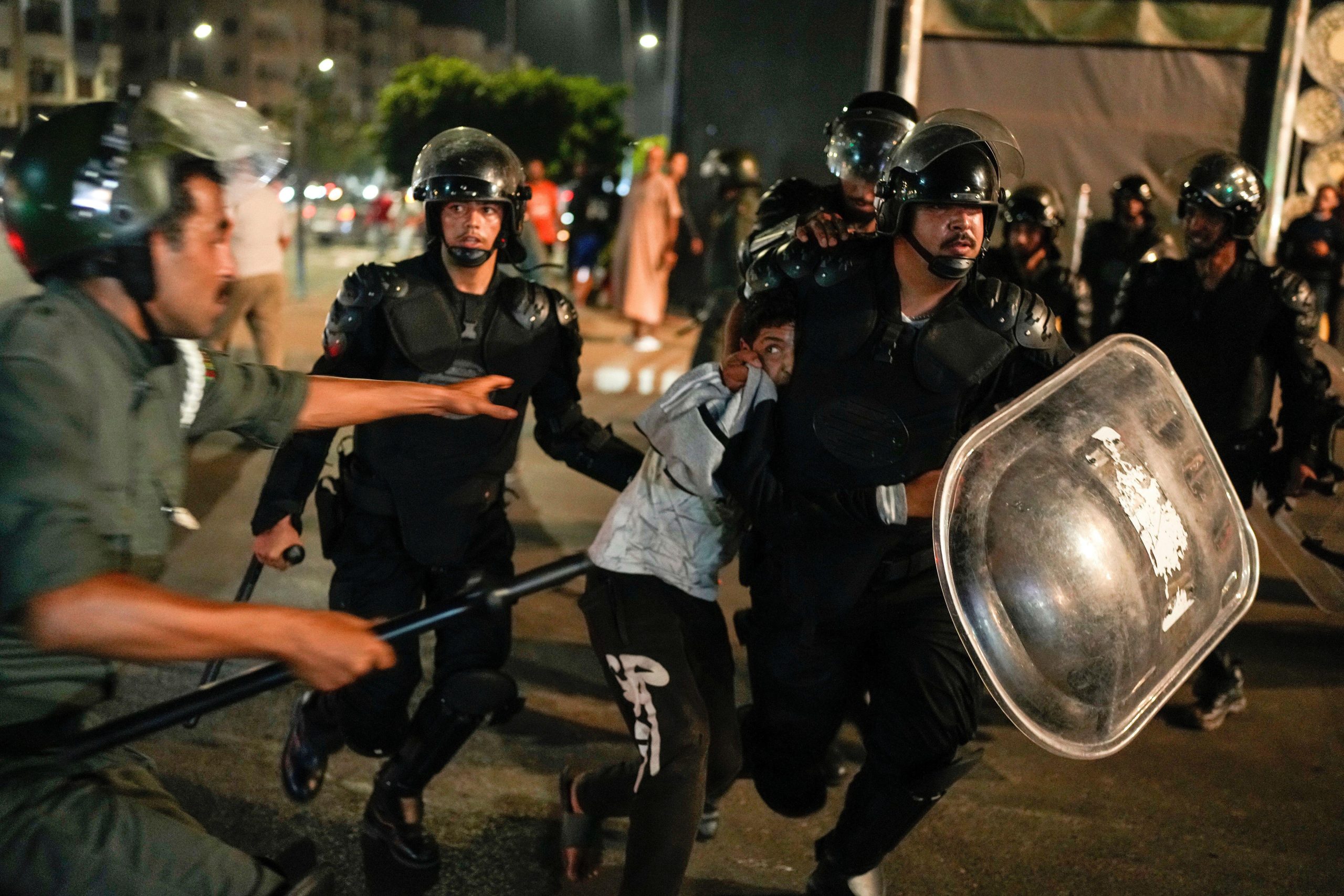 Shahira Amin, the number two at Nile television, explains why she resigned from Egyptian state television
Shahira Amin, the number two at Nile television, explains why she resigned from Egyptian state television
When I got into the car to drive to work on Thursday 3 February, I had no conscious plans to quit my job. I took the same route I take every day to the Ministry of Information building in Maspiro, Cairo. Everything looked familiar except for the army tanks acting as roadblocks on the Cornish, the main road that runs parallel to the River Nile. It was a strange sight: soldiers gesturing to car drivers to slow down for security checks. Traffic is usually heavy in the morning, but that day there was an eerie silence, the street was empty of vehicles and the atmosphere was tense.
I had stopped briefly at Tahrir Square in downtown Cairo the previous day (Wednesday) to check out what was happening. I was overwhelmed by the size of this historic demonstration. It was exciting to see so many Egyptians united for a common cause and voicing their demands: they wanted to see an end to rampant corruption. They also called on Mubarak to step down. The one word echoing in that square in the first few days of the protest was simply: Go!
For an Egyptian patriot, it was a welcome sight, and the sound of the protesters’ chants was music to my ears. I had never imagined this level of passion was possible from a people that I had long thought were passive, even lifeless, but now the giant had woken.
On Thursday as I drove to work my heart felt heavy. I recalled some of the violent scenes I had watched on my television screen in previous days. One scene that kept flashing before me was the pro-Mubarak men on horseback who had stormed through the crowd, using their whips to terrorise the protesters. It was like a scene from medieval times.
My cell phone rang and I jumped at the sound. It was a colleague from work asking why I was late. I told her that I had stopped several times at checkpoints but would be joining her shortly. I parked in the Semiramis Intercontinental Hotel, which is only a few metres away from the square. It’s close to the TV building too, and I wanted to walk the remainder of the way to work. Even then I hadn’t realised that my legs would take me directly to the square as if my body had been hypnotised by the cries of the demonstrators.
When I got to the square, I knew I couldn’t leave. I took my phone out of my bag and wrote my boss a message. Instead of informing him that I would be late for work, I found myself writing the following words: “Forgive me. I won’t be coming to the building again. I am on the people’s side, not the regime’s.”
The message was clear. I was resigning from my job as deputy director of Nile Television, Egypt’s state-run foreign language satellite channel — a job that up until that moment had been the reason for my existence. I am still not sure what came over me, but I didn’t give this life-changing decision a second thought. I quit, giving up the life I have known for over 20 years without a second’s hesitation.
I was as astonished by my decision as my bosses and workmates were. I had never considered resigning before, and everyone knew how passionate I felt about my job. It wasn’t just a managerial post; I was also a news anchor and senior correspondent. Producing feature and news stories was what I enjoyed most about the job. I have travelled the world covering major events, interviewing scores of prominent figures. I have even risked my life on a number of occasions, covering sectarian unrest on the Thai-Malaysian border, and the Gaza war 2008-9. But perhaps being in war zones wasn’t quite as dangerous as falling out of favour with this ruthless regime.
I have on occasion ruffled feathers with my reporting. Whenever that happened, it was customary to get a phone call froma state security official who would question my motives, reprimand me for “tarnishing the country’s image” and warn that the next time I would not be let off the hook.
But until now, things had been OK and I had — I believe — managed to push the boundaries of free speech even further with every “controversial” story that was aired.
So why did I resign and had I ever considered doing so before? Let me answer the second question first: no, never. I loved my work and had never felt restricted despite the threats from state security or occasional rebukes from my bosses for “crossing the red lines”. These so-called red lines usually meant interviewing opposition figures or expressing an opinion that ran counter to the official view.
My station, Nile TV, broadcasts in English and French. The target audience is different from other state TV channels — our viewers are elite, educated members of society and the foreign community in Egypt. That’s why Nile TV got away with more than other state channels. But in this latest uprising, the situation was different.
From day one, we were clearly instructed to follow the rules. We had to follow the line taken by the Arabic broadcasts on the main local channel, and broadcast what they were broadcasting. First, viewers watching Nile TV were to be given the impression that this was a normal protest to express dissatisfaction at the high food prices and an even higher unemployment rate. There would be no mention of the protesters wanting the president to step down.
Second, they were to be informed that the protest was organised by the outlawed Muslim Brotherhood (not the young activists and internet users who were really responsible for its launch). And third, that foreign agents were fomenting the unrest, fanning the flames of sectarianism and fuelling the instability to serve their own hidden agendas.
That, I believed, was a hugely distorted version of the story. Here was a historic revolution happening in our country. It was, and is, unprecedented in scale and intensity. The Muslim Brotherhood aren’t at the helm as the government would have us believe: the instigators were members of the 6 April Movement that had supported the labour riots at Mehallah el Kobra in 2008 and the ‘We are All Khaled Said’ group — named after the young man beaten to death by police in Alexandria in June 2008.
Political forces like the Brotherhood and members of the liberal Wafd Party did come on board later, but the revolution remains all-inclusive, with no political or religious agenda. The only flag raised in Tahrir square is the Red, White and Black Egyptian flag. That’s the truth.
But instead of showing what was going on in Tahrir, the pro-Mubarak rallies outside the state television building dominated our coverage on the 2 February. Here was history in the making in my own backyard and I wasn’t able to tell Egyptians the story of what was unfolding. Instea,d Egyptian audiences had to rely on Dubai-based al Arabiya and other news channels. Al Jazeera had been taken off air because of what an anchor on state TV described as incitement and bias (without mentioning the channel by name).
For any journalist, the experience of holding back information is agonising and feeding the public lies is career suicide. You stand to lose your credibility and integrity. Last Thursday, I knew I could no longer be the mouthpiece of a regime that uses such brutal tactics to silence voices of dissent.
If I continued to be part of the regime’s propaganda machine, it would mean that I too would be implicated in their crimes. I would have the blood of the innocent martyrs on my hands. So far, 300 people have been killed in these protests and thousands have been injured. Many more could lose their lives in the coming days and weeks if the situation continues unresolved.
Having left my job, I now spend most of my day in Tahrir Square with the protesters. Yesterday, I overheard a young mother tell her little child, “Be patient, the road to freedom is never easy. We are on the first step in a long and difficult road but we will get there.” I wish I was as confident as her.
I left Tahrir Square thinking: these protesters are willing to sacrifice their lives for freedom. That’s a much higher price to pay than losing a job.





